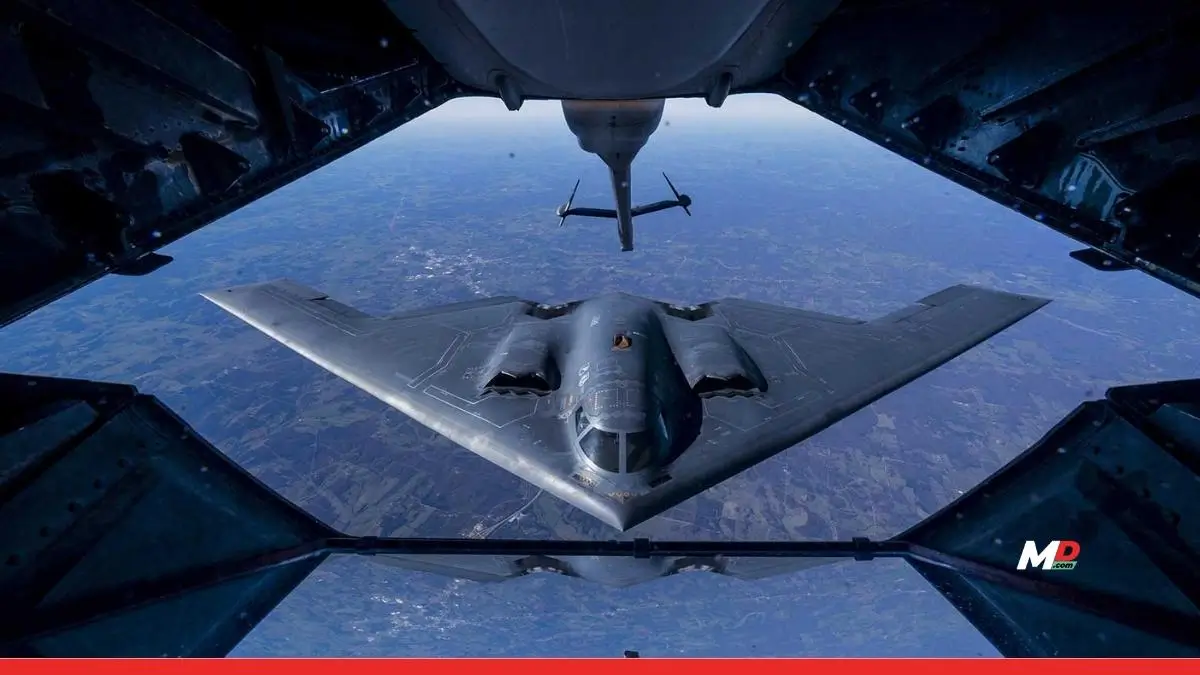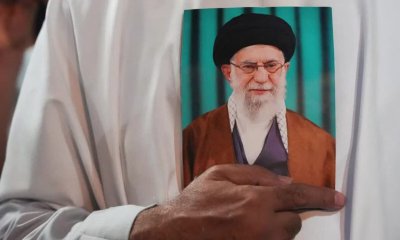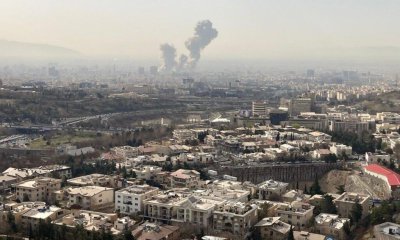Published
8 months agoon

Donald Trump returned to the White House in January with a vow: he would be the world’s great peacemaker, the president who would keep America out of foreign wars. He scoffed that Kamala Harris would have had the U.S. at war within six months, and that voters “sons and daughters will end up getting drafted to go fight for a war in a country that you’ve never heard of.”
And yet, it has taken just five months into his second presidency for Trump to do precisely what he warned others against—drag the United States into a high-stakes, potentially long-lasting military engagement with Iran.
After ordering strikes on three Iranian nuclear sites, Trump declared the operation a “spectacular success” and suggested that now, somehow, peace was within reach. It was an Orwellian moment. A president who had pledged to “end the forever wars” stood at the lectern flanked by hawkish advisors, warning that if Iran did not comply with U.S. demands, it would face “far worse” attacks. The irony is not lost on anyone: the man who sold America on restraint is now the executor of escalation.
From Peacemaker to Provocateur
Trump’s rhetoric over the past year has centered on America First non-interventionism. He mocked the so-called military-industrial complex, promised to bring U.S. troops home, and castigated past presidents for starting wars in the Middle East. But his calculus changed with Iran.
Despite intelligence assessments from U.S. officials like Tulsi Gabbard—who earlier stated Iran was not actively building nuclear weapons, and which she has had to publicly backtrack on—Trump moved ahead, relying on vague threats and speculative claims. Was it political theatre or a genuine belief that force would bring Iran to the table? Either way, the shift is seismic. Trump’s peacemaker façade has been replaced by a commander-in-chief who just initiated one of the most consequential American military actions in years.
The Middle East on a Knife’s Edge
The immediate regional fallout is already apparent. Iran has warned of retaliation. Israel, emboldened by U.S. support, has vowed to press on with its own operations. Gulf states watch nervously, aware that any miscalculation could spiral into direct confrontations. The Strait of Hormuz—a global chokepoint for oil shipments—is a single Iranian missile away from becoming a geopolitical flashpoint that will cost civilian lives on both sides.
What Trump may see as a limited, targeted operation is likely to be interpreted in Tehran as an existential threat. The attack on Fordow—a heavily fortified and symbolically significant nuclear site—was not just a tactical hit, but a deeply provocative one. Iran’s options are limited but dangerous: retaliate and risk a broader war, or remain restrained and risk appearing weak both domestically and regionally.
Global Implications: Fracturing the Rules-Based Order
This strike has also fractured what remains of the post-World War II global order. Pre-emptive military action, justified under tenuous grounds of self-defense, has now been normalized once again by the world’s most powerful democracy. International law, already battered by the wars in Iraq and Ukraine, has suffered another blow.
By choosing war over diplomacy, the U.S. has sent a chilling message: negotiating in good faith can be a strategic liability. Iran, which had once complied with the Obama-era nuclear deal, now finds itself bombed while North Korea, armed and defiant, faces no such fate. The incentives are clear. Possess nuclear weapons, or risk being targeted.
This will not be lost on authoritarian regimes worldwide. Russia and China—both vocal in condemning the U.S. strike—are unlikely to offer military support to Tehran. But they will use this moment to justify their own future aggression, cloaked under the same pretense of “pre-emptive defense.”
The Domestic Tightrope
Domestically, Trump faces a political paradox. His America First base may have tolerated one strike, framed as a defensive masterstroke. But if this morphs into a broader conflict with rising American casualties and costs, internal divisions will surface rapidly.
Vice President JD Vance, once a vocal skeptic of interventionist policies, now finds himself defending military action. Whether that’s a sign of ideological evolution or political expediency, it reveals the cracks in Trump’s coalition. Republican hawks are thrilled, but libertarian conservatives and the populist right are watching closely. Trump’s gamble is clear: deliver a quick, decisive blow and extract diplomatic concessions, or risk alienating the very voters who brought him back to office.
What Peace, at What Cost?
Despite the president’s post-strike speech claiming this was a step toward peace, the road ahead looks anything but peaceful. Iran has not surrendered its ambitions. The Israeli government, led by Netanyahu, has no incentive to de-escalate. And Trump, now committed militarily and politically, may find himself dragged deeper into a conflict he cannot contain.
Steve Witkoff, Trump’s envoy for Middle East negotiations, is already being sidelined. The so-called two-week negotiation window was revealed to be a farce—cut short by an impulsive decision to strike just 48 hours later. If this was a strategic ruse, it was one that will carry grave consequences.
A Reputational Cost the World Will Feel for Years
In geopolitical terms, the U.S. has shown its willingness to abandon diplomacy at a moment’s notice. This will haunt it in future conflicts, negotiations, and alliances. Trust, once broken, is hard to restore.
In moral terms, the West now finds itself implicated in a war fueled in part by Israel’s own strategic imperatives, including an increasingly vocal push for regime change in Iran. The U.S., by aligning so closely with Netanyahu, may lose standing with regional allies and enflame tensions with adversaries who see this as an imperial project under new branding.
The death toll, economic shocks, and refugee crises that follow will not be constrained by borders. This war, if it escalates, could define not just Trump’s presidency but the international order of the coming decades.


Ayatollah Khamenei confirmed killed, as Tehran promises retribution


USA and Israel attack Iran, plunging Middle East into chaos


Switch Mobility delivers the first iconic electric Double Decker in Delhi


Here’s how agility is shaping the future of logistics


The evolution of modern partnerships in air cargo


Rosmerta unveils “The Curious Bunch” taking Road Safety Mission to Classrooms

